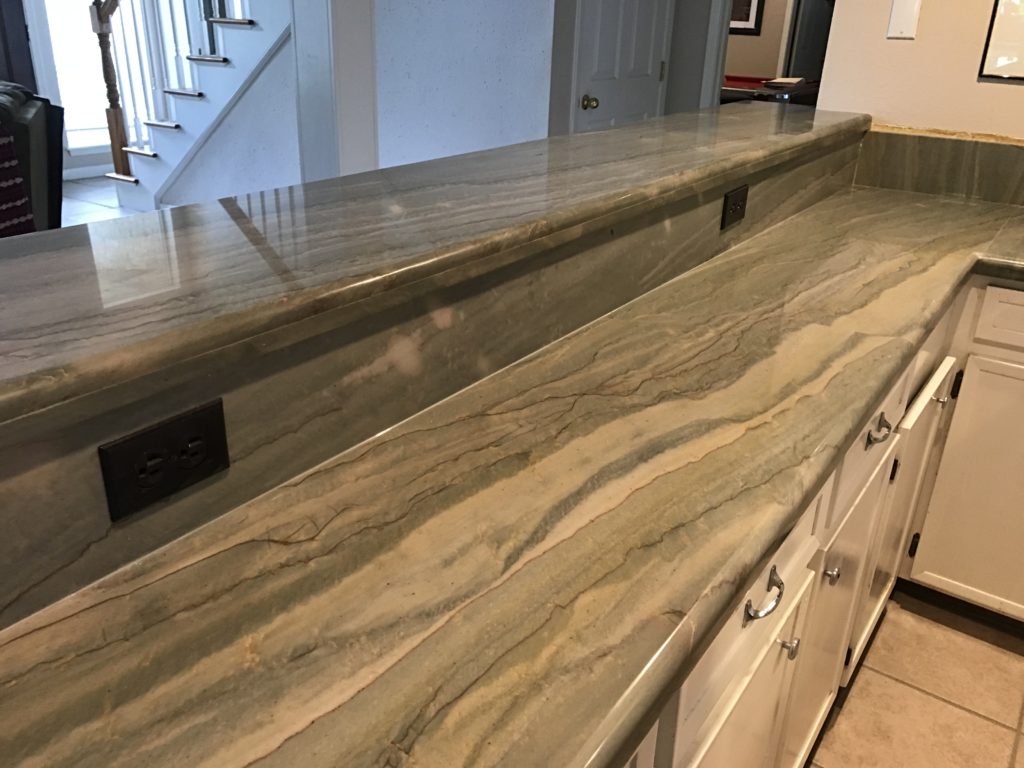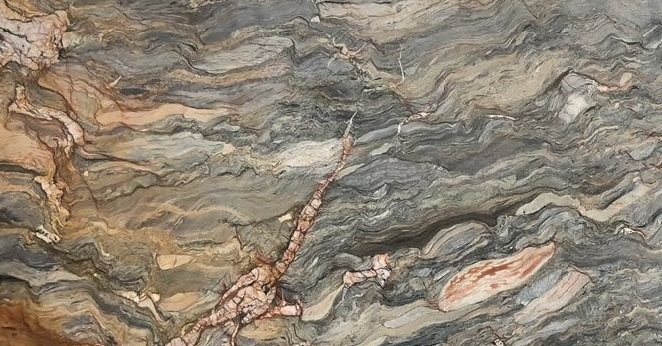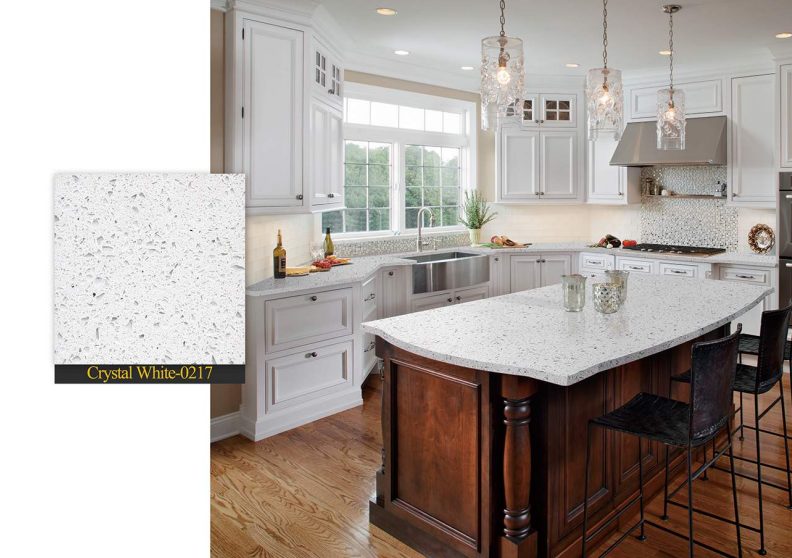Some people may want some alternatives for their new home renovation projects. Granite countertops have become a classic but some people want other options to try. Both quartz and quartzite are popular materials for home décor projects, especially for countertop renovations. Most people may think the two are similar materials but, in fact, they differ in terms of what they are made of, maintenance and durability as well as the appearance.
The main difference occurs while they are made. Quartz is an engineered material. A quartz slab is made of approximately 93% crushed ground quartz, which can be described as a crystal-like mineral that occurs naturally, mixed with 7% resin in order to create an extremely strong surface that can be compared to granite in various ways. Quartzite is a natural stone that bares some similarities to marble. If you are interested in using quartz or quartzite for your new project, it is a good idea to know the basic differences in between the two:

Caring/Maintenance
One of the biggest advantages of quartz slabs over quartzite is the fact that the caring of the product being effortless. Our quartz slabs require almost nothing in terms of maintenance. The only thing you need to do is clean the countertops with a damp cloth like you would do to any surface. It is as simple as that!
Since quartzite is a natural stone, it needs a little more caring. The key point in quartzite’s maintenance includes the fact that it needs to be properly sealed during installation. The quartzite slabs also require resealing once or twice a year. This process of resealing helps the users to avoid stains from diffusing into the quartzite countertop. After the proper sealing, the caring is also very easy just like quartz countertops.

Durability
It is important to emphasize that quartzite slabs are strong and can be harder than granite. Quartzite slabs are not only durable to handle busier areas of your space but also is heat-resistant to an extremely high degree. The disadvantage of the quartzite slabs is that chips and dents can occur due to their nature.
Even though, the colors of quartz slabs can fade when exposed to direct sunlight for a long period of time, it is also durable. One important advantage that quartz has over quartzite is its flexibility. The flexibility enables the slab to avoid having dents and chips.

Appearance
Since Quartz is man-made, its designs can easily be created in different variety of patterns and colors. Quartzite’s designs, on the other hand, usually range from white to gray with some inclusion of pink and/or red hues since it is a natural stone. When other minerals are involved with quartzite slabs, the color hues may involve blues and greens as well. It really does not matter whether or not it is an engineered slab or a natural stone, both materials include a large range of selection that can guarantee you to find the perfect one for your own space.
So, when it comes to making a decision it only comes down to personal preferences since the both quartz and quartzite slabs are excellent choices for your renovation project. It depends on your priorities. If you want to use natural stones in your countertops, you can lean more on quartzite whereas you are more likely to choose quartz if you are interested in a more diverse designs. Also, if you are not a fan of sealing your countertops then quartz seems to be a better option to consider and so on.
As one of the largest granite suppliers in Houston, Terra Granite offers a rich collection of both quartz slabs and quartzite slabs. Please make sure you check out our websites www.terragranite.com and www.veraquartz.com or visit the local store in Houston for more ideas and information on the quartz and quartzite slabs. Out trained professionals are ready to help you with anything you want.






